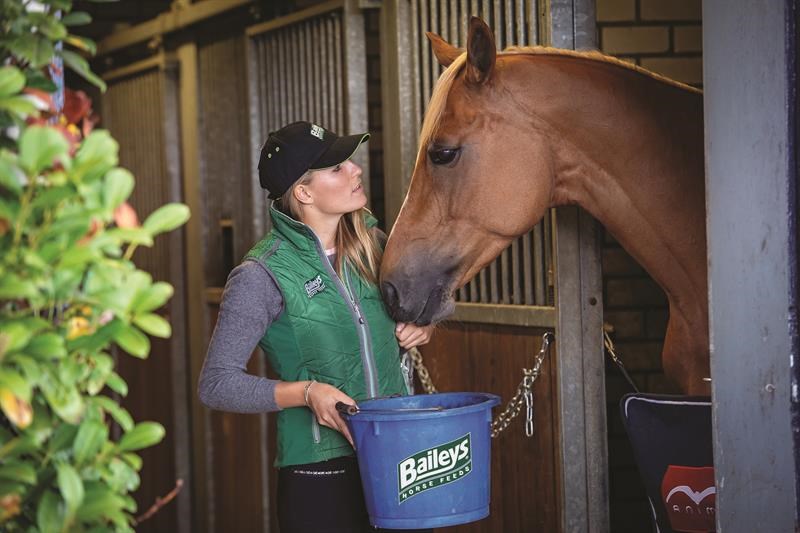Some horses are fussy about the flavour and texture of feeds and some have small appetites. Fussy horses can be a headache and it may be only trial and error which helps you find whether they prefer or dislike a particular mix or cube or certain ingredients. A reduced appetite can also be frustrating but may be for a number of reasons, generally stress-related.
Top Tips
Find Out Why
If your horse is working, not eating the recommended amount of hard feed will mean he misses out on essential nutrients, as well as calories, which will affect his ability to perform and hold condition. It’s very important to ascertain whether the “fussiness” is due to any health or stress-related issues. Check your horse’s teeth, worming programme and management routine and consider whether he may be suffering from gastric ulcers.
Ad Lib Forage
Ensure the horse always has access to forage and that he or she does consume no less that the “healthy” minimum of the equivalent of 1.5% of their bodyweight ie. a 500kg horse should consume at least 7.5kg/16lb of forage/fibre, per day, to maintain a healthy digestive system. If hay or haylage are not your horse’s favourite, try feeding other fibre sources in separate buckets from the hard feed. Speedi-Beet and Fibre-Beet are ideal and can be fed on their own or with a Baileys chaff, like Light chaff or Alfalfa Blend. High fibre cubes or nuggets, like Baileys Fibre Plus Nuggets, are also tempting sources of additional fibre.
Small Meals
Divide the overall concentrate ration into as many small meals as possible in order to avoid overloading the stomach and causing digestive upsets which can affect appetite. Unless you are convinced that they help tempt the horse to eat, leave chaffs and beet out of the concentrate meal to encourage the horse to eat up; if they do not consume the recommended daily amount of your chosen mix or cube, they will not be receiving a fully balanced diet.
Concentrated Feeds
Nutrient or energy-dense feeds are useful when horses won’t eat large volumes so consider using a balancer, which will provide quality protein, vitamins and minerals and is fed by the mug-full rather than in scoops. High oil supplements, like Baileys Outshine, are generally more palatable than straight oil, and useful because they provide a concentrated source of calories, which can be added to an existing balanced diet to increase the overall calorie content without significantly adding to the overall volume fed.

Tasty Tempters
If, despite trying a variety of mixes and cubes, your horse still needs tempting to get his nose in the bucket, you could try mixing in a little extra molasses, apple juice or blackcurrant cordial. Grated or chopped carrots or apples are another idea as is dried spearmint or a handful of horse treats. Other herbs which can be added include fenugreek, cinnamon and aniseed. Some horses like their feeds wet/soaked, others don’t. Warm water used for soaking/damping may prove tempting, especially in the winter, as can herbal teasFeeding Fussy Horses.
Digestive Support
Consider feeding a pre or probiotic supplement to encourage and support a healthy microbial population in the gut, which should not only improve digestive efficiency but also help avoid any digestive upsets or discomfort that may affect appetite.

Stress Busting
If your horse is stressy, reviewing and adapting your management routine may be necessary. Turning out as much as possible will help most horses and positioning hay nets and mangers near the door or window so that the horse can still see out – and other horses – whilst eating, should help encourage increased consumption. Some horses, especially youngsters, do not like putting their heads down into deep buckets so choose shallow buckets or trugs to encourage them.
01371 850247

